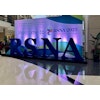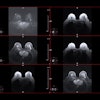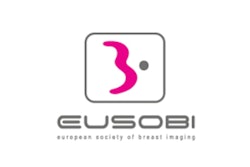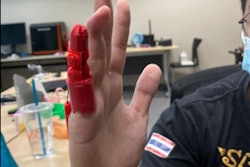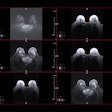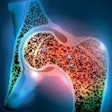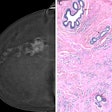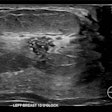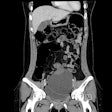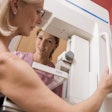Asian women in Singapore have a generally positive attitude toward breast cancer risk assessment and stratified screening, suggesting a high likelihood of acceptance and support for implementing this approach, according to a survey presented at the European Society of Breast Imaging (EUSOBI 2024) annual congress in Lisbon.
While risk assessment holds promise for enhancing breast cancer screening strategies, understanding women's attitudes towards these initiatives is crucial for successful implementation, noted first author Bao Lin Pauline Soh, PhD, assistant professor at the Singapore Institute of Technology.
"The perceptions of Asian women regarding these initiatives are relatively underrepresented in the literature," she explained. "This study aims to address the gap in current literature by investigating Asian women's perceptions regarding breast cancer risk assessment and stratified screening."
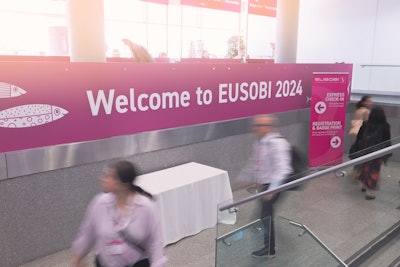 There were nearly 2,000 delegates at EUSOBI 2024, including over 1,300 radiologists and 160 radiology residents. The best-represented countries were Portugal (210 attendees), the Netherlands (152), Italy (142), the U.K. (142), Germany (95), Spain (92), Turkey (89), and Switzerland (80). All photos courtesy of Jason Kimmings and EUSOBI.
There were nearly 2,000 delegates at EUSOBI 2024, including over 1,300 radiologists and 160 radiology residents. The best-represented countries were Portugal (210 attendees), the Netherlands (152), Italy (142), the U.K. (142), Germany (95), Spain (92), Turkey (89), and Switzerland (80). All photos courtesy of Jason Kimmings and EUSOBI.
The researchers conducted an online survey targeting women ages 21 to 90 in Singapore, using the Qualtrics platform. Recruitment spanned from June to December 2022 and from August 2023 to February 2024, employing diverse recruitment methods including email outreach, social media platforms, and study posters displayed at five healthcare institutions across Singapore.
Their analysis employed adjusted logistic regression models to explore the relationship between participants' characteristics and their perceptions and attitudes toward breast cancer risk assessment and stratified screening.
A total of 706 participants completed the questionnaire, of which the researchers analyzed 595 valid entries. The ethnic distribution was Chinese (70.1%), Malay (10.9%), Indian (14.6%), and others (4.4%).
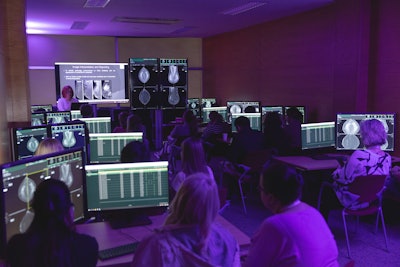 Training in image interpretation and reporting was on offer at EUSOBI 2024, which took place from 3 to 5 October.
Training in image interpretation and reporting was on offer at EUSOBI 2024, which took place from 3 to 5 October.
The majority of women (80%) agreed that it would be good to know about the risk of developing breast cancer, with most willing to have their risk level assessed using their personal information (75%), breast density (74%), and genes (71%). Although 80% of participants would accept an increase in screening frequency if they were at higher risk, only 66% agreed to a reduction in screening frequency if they were at lower risk, and 39% endorsed no screening for lower-risk women.
Multivariable adjusted models demonstrated variations in perception and attitude toward risk assessment by age, ethnicity, housing type, and family history of breast cancer compared to others (all p < 0.05), the authors pointed out.
"These insights provide valuable groundwork for the development and implementation of targeted breast cancer screening programs tailored to the preferences and needs of the local population," Soh and colleagues wrote, adding that in general, risk assessment can potentially enhance breast cancer screening.
 A performance of traditional Portuguese guitar-playing thrilled attendees during the opening ceremony in Lisbon.
A performance of traditional Portuguese guitar-playing thrilled attendees during the opening ceremony in Lisbon.
Looking ahead, Soh is now conducting a systematic review comparing traditional breast cancer risk assessment models with AI-based models specifically among Asian women. "Following this study, I hope to explore healthcare providers' attitudes and readiness to implement risk-based breast cancer screening. This exploration could provide valuable insights into the potential challenges and barriers in incorporating risk-based assessment into routine clinical practice."
You can read the full EUSOBI 2024 e-poster here. The co-authors were K.L.L. Ng, N.F.M. Rabeek, Z.Y. Choo, and M.L.D. Thirunavakarasu from the Singapore Institute of Technology; L.P. Ng, M. Xiong, E.P.Y. Lee, Z.K.L. Ma, E.C.W. Lee from SingHealth Polyclinic; and L.S.J. Sim, I. Heng, and E.C.C. Cacayan from Singapore General Hospital.

